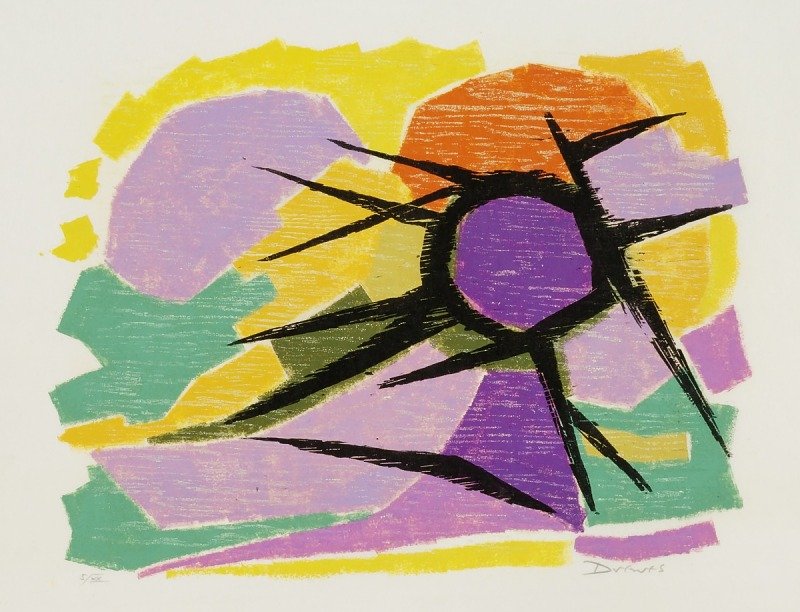Tell it Again
Eclipse, by Werner Drewes from the collection of the Smithsonian American Art Museum
Experience + engagement = integrated connections.
Yesterday, we had an eclipse. Perhaps you heard?
An eclipse is an experience.
Now it’s time for the engagement.
Your child saw the eclipse, or they lived through the day when everyone was chatting about it, outside looking at it, carrying special glasses around.
It’s time to activate the engagement. This is the time when some vital follow-up integration can happen.
When I was an educator, supporting children through a competitive preschool application process, a typical question was: “describe this child’s capacity for forming connections.”
Your engagement is a key part of this process.
Keep talking about that eclipse! Time to ask some questions.
Let’s talk about when we went saw the eclipse yesterday!
Where did we go to watch the eclipse?
Get increasingly specific with prompts as your child grows capacity.
The park; the Great Lawn; the southwest side of the Great Lawn, not far from the lower baseball fields by Columbus Circle.
The beach; Bayley Beach; the area of the shore just in front of the playground.
Our yard; we started on our back steps and then walked down into the grass, close to the house.
With whom did we watch the eclipse?
Our family! You finished school early. Dad was able to take the day off of work. Mom left the office for a little bit, too. We left the Calla, our dog, inside so she didn’t look at the sun without glasses. But she really wanted to be outside with us.
Grandma. We drove to her house to surprise her.
Our friends. They met us in the park! Who was there?
Some of our neighbors. Who came out into the street with us?
When did we watch the eclipse?
What time of day was it? Do you remember the time? How long did it take?
What did the eclipse look like? What did we need to bring with us to watch the eclipse?
What shapes did you see? What colors? Did anything else change in the world around you?
What were the glasses like?
Why did we watch the eclipse? Why does an eclipse happen? Why did we wear special glasses
What made that an important or interesting experience?
How can an eclipse impact the world around us? How did some of our other friends and family experience the eclipse?
Two key points to keep in mind:
Scaffold and support your child’s capacity to recall and communicate by taking the snippets they offer you and weaving them together into sentences and a more cohesive narrative.
Have ongoing conversations to support integration and retention - tomorrow, over the weekend, next week, next month, a few months from now.
You’ll see how your child starts to integrate and describe the experience more fluidly with time and with your scaffolding.
This type of clear, thoughtful engagement allows your child to more consciously process, understand, and remember the content and concepts of life. Don’t leave an experience behind when you can do so much more with it in this natural and accessible way.
What else can you do?
Draw the eclipse.
Make a book together about the eclipse, using the information you gathered through asking the questions above.
Access more resources about an eclipse - go check out your local library with your child to see what you can find!
